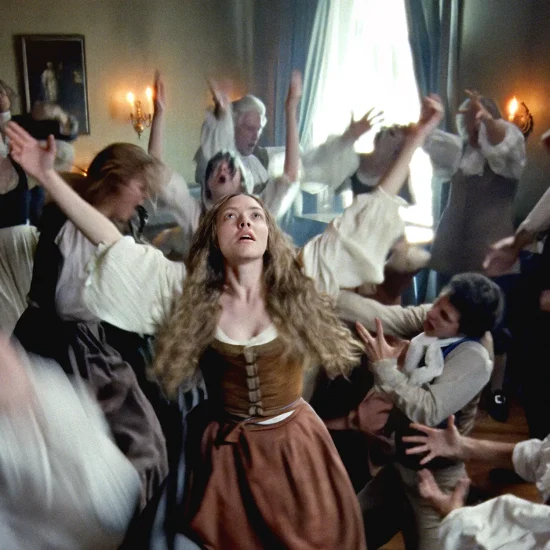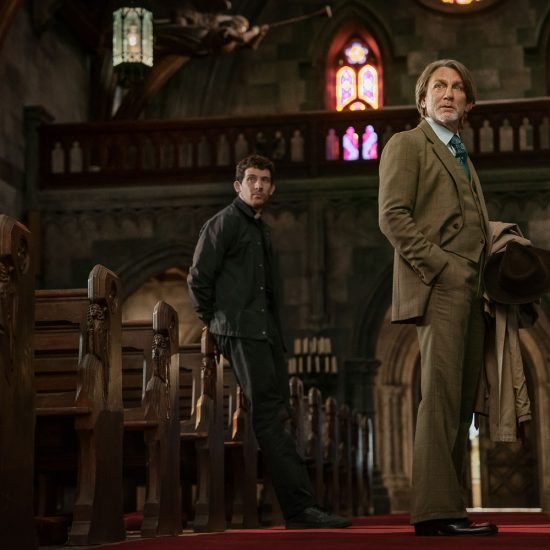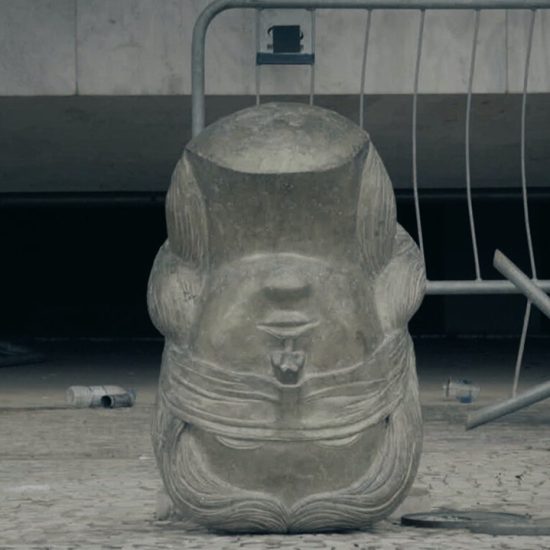(RNS) — Mark Twain, a.k.a. Samuel Clemens, didn’t have much of anything good to say about religion, at least the organized kind.
“I have a religion — but you will call it blasphemy,” he wrote in a letter in 1865. “It is that there is a God for the rich man but none for the poor … Perhaps your religion will sustain you, will feed you — I place no dependence in mine. Our religions are alike, though, in one respect — neither can make a man happy when he is out of luck.”
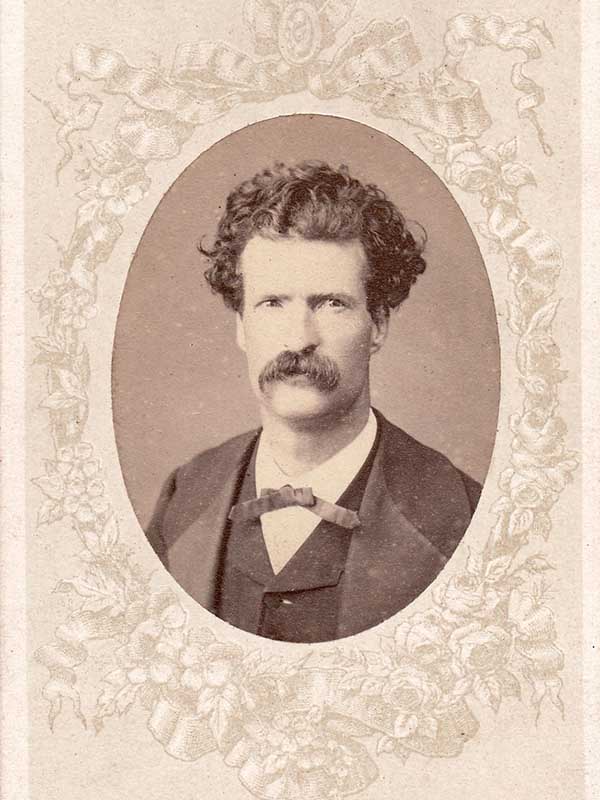 Portrait of Mark Twain taken in Istanbul in 1867, during his historic trip.But it was a trip to the Holy Land in 1867 that launched him from local journalist to international satirist with “Innocents Abroad: Or, the New Pilgrim’s Progress,” a book based on the journey. That pivotal trip, and its impact on Twain’s views on religion, are the subject of “Mark Twain’s Journey to Jerusalem: Dreamland,” which begins airing this month on PBS stations.
Portrait of Mark Twain taken in Istanbul in 1867, during his historic trip.But it was a trip to the Holy Land in 1867 that launched him from local journalist to international satirist with “Innocents Abroad: Or, the New Pilgrim’s Progress,” a book based on the journey. That pivotal trip, and its impact on Twain’s views on religion, are the subject of “Mark Twain’s Journey to Jerusalem: Dreamland,” which begins airing this month on PBS stations.
“Samuel Clemens had a constant, life-long sort of jilted love affair with the Bible,” Twain biographer and historian Ron Powers says in the introduction to the hour-long film. “He wanted to believe, but he couldn’t believe.”
Twain’s journey to Jerusalem started with a demand. “Send me $1,200 at once,” he telegraphed his editors at the Alta California, a San Francisco newspaper. “I want to go abroad.”
Amazingly, the editors did and Twain booked passage on The Quaker City, America’s first cruise ship. The other passengers were religious pilgrims and rich young men looking to acquire a little sophistication before settling down. Twain embedded himself in both groups and began sending back to the paper what would be more than 50 “dispatches.”
The five-month trip was a disappointment to Twain from the start. In Europe, he lamented the fatness of the priests and the scrawniness of the poor, marveled at the shabbiness of religious attractions like DaVinci’s “The Last Supper” and wondered at the dullness of the locals.
He found the religious pilgrims he traveled with — men and women from small town America who had never been abroad before — narrow-minded and hypocritical. They held nightly prayer meetings on board the ship but ignored the suffering they saw among the poor everywhere they went.
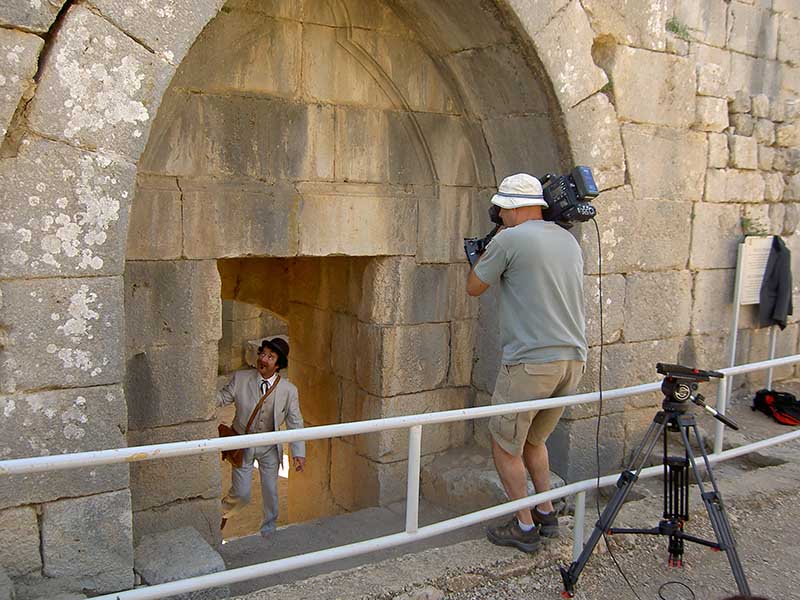 Actor Jeffrey Weissman portrays Mark Twain in “Mark Twain’s Journey to Jerusalem: Dreamland.”None of that changed when the travelers entered the Holy Land, the last stop on their 8,000 mile journey. The pilgrims cry crocodile tears at the supposed site of the crucifixion, they chisel off souvenirs from the walls of temples, they haggle with impoverished locals charging a few dollars for a boat ride on the Sea of Galilee, where Jesus is supposed to have walked on water.
Actor Jeffrey Weissman portrays Mark Twain in “Mark Twain’s Journey to Jerusalem: Dreamland.”None of that changed when the travelers entered the Holy Land, the last stop on their 8,000 mile journey. The pilgrims cry crocodile tears at the supposed site of the crucifixion, they chisel off souvenirs from the walls of temples, they haggle with impoverished locals charging a few dollars for a boat ride on the Sea of Galilee, where Jesus is supposed to have walked on water.
“What fascinates Mark Twain most as he enters the Holy Land is not so much the Holy land itself, and its various relics and temples,” Ann M. Ryan, a Twain scholar, says in the film, “but the hugely artificial response of the pilgrims he is traveling with … He sees it as a desecration.”
Twain, a Presbyterian steeped in the bare bones approach of Calvinism, was also scandalized by the amount of decoration — crosses, candlesticks, mosaics, statues, etc. — found in Jerusalem.
“He sees it as a kind of theme park,” Powers says.
He is especially critical of the Holy Sepulchre, a fourth-century site that is supposed to contain the “tombs” of both Adam and Jesus.
“How touching it was, here in a land of strangers,” Twain wrote of Adam’s tomb, “thus to discover the grave of a blood relation. True a distant one, but still a relation.”
But Twain had at least one experience that seems to have genuinely affected him. The last stop in the Holy Sepulchre is the site where the crucifixion is supposed to have taken place.
“I could not believe the three holes in the top of the rock were the actual ones the crosses stood in,” he wrote. “But I felt satisfied that those crosses had stood so near the place now occupied by them that the few feet of possible difference were a matter of no consequence.”
Laura Skandera Trombley, former president of the Huntington Library, hones in on this moment. “The experience Twain has at the site of the crucifixion is really profound for him and meaningful,” she says. “He recognizes that this may have happened and gains some understanding into why religion is so powerful.”
Twain put all of his disdain and disappointment — leavened with a hearty dose of humor — into “The Innocents Abroad.” It was the most successful of his works during his lifetime.
Twain’s skepticism about religion lasted all of his life. He had a personal faith — he said he believed in God, attended church and donated money for the construction of a church. But he skewered religious hypocrisy wherever he found it.
“Man is without any doubt the most interesting fool there is,” he wrote in “Letters from the Earth,” a commentary on Bible stories written in 1909, one year before his death.
“Also the most eccentric,” Twain added.
“He hasn’t a single written law, in his Bible or out of it, which has any but just one purpose and intention — to limit or defeat the law of God.”

